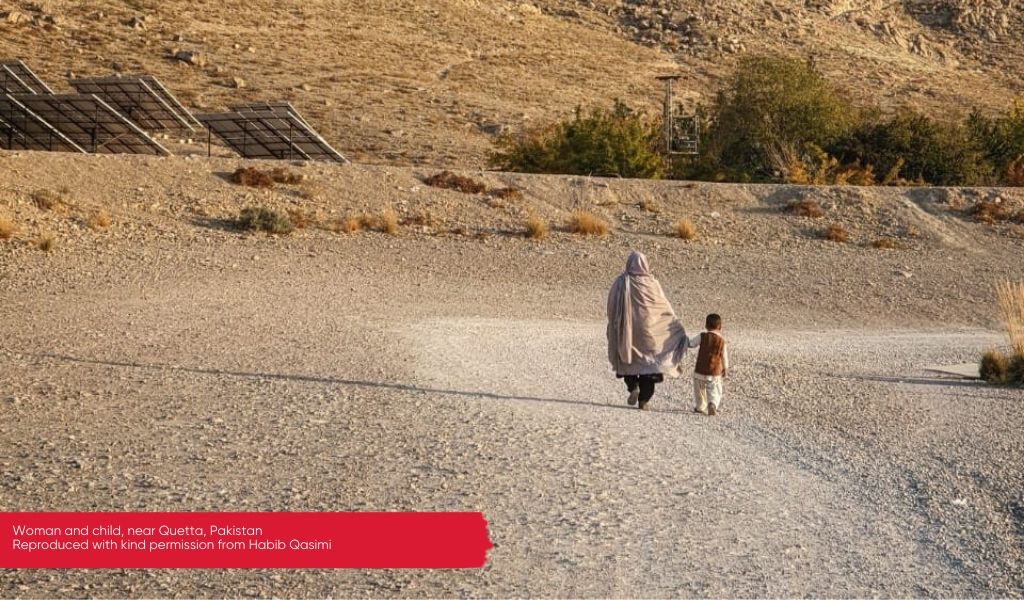Hazaras are both an ethnic and religious minority in majority Sunni Pakistan. In Quetta, the capital of Balochistan, there are about half a million Hazara Shias, regarded as apostates by some extremist Sunni groups. They have experienced an increase in discrimination since the outbreak of Covid-19, writes Muhammad Aman.

“You have to go in disguise with someone who doesn’t look like a Hazara if you want your (pregnancy) scans done” the gynaecologist told 27 year old Tayyaba* in north-west Pakistan.
Tayyaba, 27, lives in Mariabad, a Hazara neighbourhood of Quetta. It was April 17 when she visited a government hospital for a checkup. After examining her, the gynaecologist referred her for a colour ultrasound scan due to complications, recommending a private PolyClinic at the heart of the city.
“But the scan doctor has specifically asked me not to refer any Hazaras” warned the gynaecologist, adding ” I’ve heard he’s also instructed staff members to ward [Hazaras] off with the excuse that he’s not available”
A few weeks prior to this, the Balochistan provincial government had ordered Mariabad and another neighbourhood, Hazara Town, to be cordoned off in quarantine while surveyed for the presence of coronavirus. The Chief Secretary linked the decision to reports that month of the virus spreading in major Shia pilgrimage centres in Iran such as Qom and Mashhad. Government employees were forbidden to enter the two areas for a week or so. After this period, food vendors were allowed in and out, and by mid-April residents like Tayyaba were able to go out to attend medical appointments.
Disturbed by the gynaecologist’s suggestion, Tayyaba discussed what to do with her family. They requested a non-Hazara employee’s help. The employee’s Punjabi wife, Samina, agreed to take Tayyaba to the clinic.
“I had to put on a big pair of glasses, wear make-up as a disguise and go with Samina just to get a service provided to others without any problem. But I was still not sure if I’d done enough. I went through needless agony that day fearing that the doctor might identify my accent – we have a peculiar way of speaking Urdu. I had a long conversation with Samina and told her all the questions I wanted to ask, so as to speak as little as possible. Women from other communities had no such fear. They were not anxious, simply because of their ethnic identity”.
Tayyaba was not identified (as Hazara) and so was scanned. The scan revealed that a normal delivery would risk the baby’s life; she was recommended a C-section as soon as possible. Her son was safely delivered the next day.
Hazaras denied basic health services
There are multiple cases of Shia Hazara patients being denied basic health services both at government and private hospitals. These have been confirmed by other minority communities.
Jawad*, a Hazara Town resident suffering from high blood pressure, was denied treatment when he visited Bolan Hospital, the largest government hospital close to Hazara Town on 5 April. His son said, “My father was not attended to by any doctor, even the nurses did not bother to provide him with basic services. He ended up paralyzed”.
Asif*, another resident of Mariabad, took his brother to the Civil Hospital in Quetta on 20 April when he started showing symptoms of appendicitis. The doctor on duty told Asif “We are not allowed to treat any patient from Mariabad.”
Asif asserted “There is a little doubt that such suspicion of us, expressed recklessly by the highest government officials, would trickle down to public offices such as hospitals.”
But the Director of Medical Services of the Civil Hospital, Dr. Javed Akhtar, denied any formal discrimination. “There has been no official or otherwise [discriminatory] statement by the administration and the hospital is fully functional and open to all. There’s a general fear regarding the outbreak and local doctors are not immune to that fear. But someone might have said something in their personal capacity”.
There is no doubt that the whole country was in a state of disarray due to the outbreak of coronavirus but Hazaras say that government officials singling them out as ‘to blame’ will have multiplied discriminatory attitudes at workplaces, bazaars and especially in healthcare facilities.
Given that they have been frequently targeted in the past, Hazaras were prepared for further discrimination against them by the public, but this was magnified once the authorities appeared to put all the blame for the spread of Covid-19 on the Hazara community.
“I was sent on leave for an indefinite period while my colleagues from other communities practiced their duty regularly” said Dr. Muhammad*, a Hazara doctor at a government hospital. Hazara police officers were also reported to be sent home on leave.
The Hazara community, which has suffered from years of marginalisation, now fears that discrimination within the basic healthcare system will serve as a barrier to dealing with the pandemic, while also increasing the psychological stresses of an already vulnerable population.
*These are not their real names. We have also anonymised some of the doctor’s and hospital’s names.
Muhammad Aman is an educationist based in Quetta, Pakistan. He tweets at @amn_o_aman. This blog was written as part of our Religious inequalities and the impact of Covid-19 series.